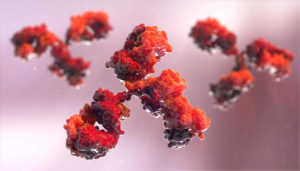 Multiple sclerosis (MS) seems to only be a conversation amongst the white community but although it’s rare for blacks it actually hits them more severely. Researchers report an immune system molecule that attacks the protective shield around nerve cells appears to play a critical role in the most severe form of MS.
Multiple sclerosis (MS) seems to only be a conversation amongst the white community but although it’s rare for blacks it actually hits them more severely. Researchers report an immune system molecule that attacks the protective shield around nerve cells appears to play a critical role in the most severe form of MS.
Unusually high levels of the molecule, an antibody to a major element of the myelin sheath around nerve cells, are found in patients with the rapidly moving, progressive form of multiple sclerosis (MS), Dr. Claude Genain reported today at the annual meeting of the American Neurological Association in New York City.
"We're not sure, but it appears these antibodies could be causing the nerve damage, especially in this progressive form of MS," says Genain, who is an assistant professor of neurology at the University of California, San Francisco.
The target of the antibody attack is myelin oligodendrocyte glycoprotein (MOG). Research in several laboratories has shown the anti-MOG antibody destroys myelin in an animal model of MS, but its role in the nerve destruction that causes MS in humans has been unclear.
The disease can start with slow, "relapsing and remitting" destruction of nerve cells, or the more rapidly moving progressive form. Genain and his colleagues studied the levels ofanti-MOG antibody and of several other antibodies that have been found to react with components of myelin in 27 patients with slower-moving MS, 49 patients with the progressive form, and 18 persons without MS.
"We show that it appears in the progressive form from the beginning," Genain says. "In these cases, levels of only one antibody, anti-MOG, are elevated. My interpretation, very cautious, is that the anti-MOG antibody may cause the destruction in the progressive form. In the secondary form, it may be a marker of a general process of nerve cell destruction, but this has not been proven experimentally."
The anti-MOG antibody, or the immune system B-cells that make them, could be a target for MS treatment, Genain says.
"We are designing a human study of that, and we are hoping that it could begin next year," he adds.
The test of anti-MOG levels used in the study could also be applied to diagnosis, Genain says. "This appears to be the first simple, reliable and inexpensive blood test that correlates so strongly with clinical parameters in studies of MS," he says. "Its use, in combination with other disease markers, would significantly advance our understanding of what causes the different forms of MS and how they should be treated."
The finding "definitely enlarges an important area of research," says Dr. John W. Rose, a professor of neurology at the University of Utah and a spokesman for the National Multiple Sclerosis Society. Human studies oftreatment of MS by plasma exchange, in which blood is "cleansed" of unwanted substances, have found elevated levels of anti-MOG antibody, he says.
However, the picture is not clear, Rose says. A number of studies, including the one reported by Genain, have found elevated levels of anti-MOG antibody in about a third of persons who do not have MS, he notes, and so "it is a matter of going on and finding out more about how these antibodies work. But the study points to the possibility not only of plasma exchange but also targeting antibody-producing cells as part of MS therapy."
If you have advanced MS, don’t give up hope as there are treatments still readily available to you. For more information on this condition, visit our Health Conditions tab on BlackDoctor.org.
SOURCES: Claude Genain, M.D., assistant professor, neurology, University of California, San Francisco; John W. Rose, M.D., professor, neurology, University of Utah, Salt Lake City; Oct. 15, 2002, meeting, American Neurological Association, New York City








